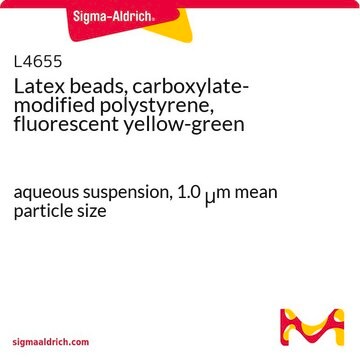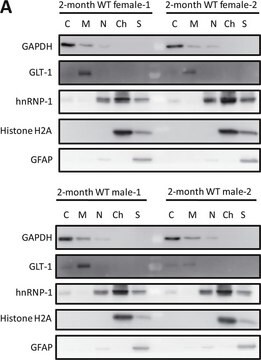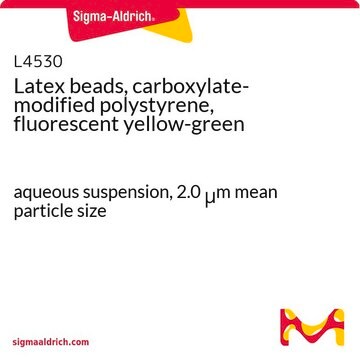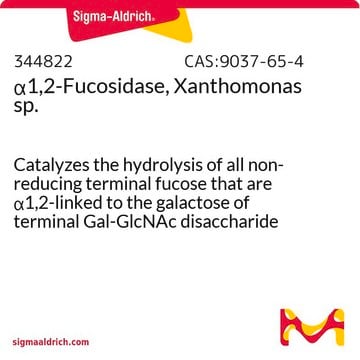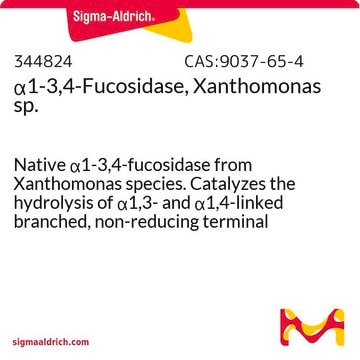HTS021RTA
Ready-to-Assay MC2 Melanocortin Receptor Frozen Cells
Human
Faça loginpara ver os preços organizacionais e de contrato
About This Item
Código UNSPSC:
41106514
eCl@ss:
32011203
NACRES:
NA.81
Produtos recomendados
product name
Ready-to-Assay MC2 Melanocortin Receptor Frozen Cells, Human MC2 GPCR frozen cells for Calcium Flux FLIPR Assays.
fonte biológica
human
Nível de qualidade
fabricante/nome comercial
Ready-to-Assay
técnica(s)
calcium flux assay: suitable
nº de adesão NCBI
método de detecção
fluorometric
Condições de expedição
dry ice
Descrição geral
Millipore’s Ready-to-Assay GPCR frozen cells are designed for simple, rapid calcium assays with no requirement for intensive cell culturing. Millipore has optimized the freezing conditions to provide cells with high viability and functionality post-thaw. The user simply thaws the cells and resuspends them in media, dispenses cell suspension into assay plates and, following over night recovery, assays for calcium response.
The melanocortins, α-, β- and γ-melanocyte-stimulating hormones (MSHs) and adrenocorticotropin (ACTH), are peptides derived from a precursor protein POMC. The MSH peptides and ACTH bind to a family of five Class 1 Gs-coupled seven transmembrane receptors (MC1-5) and play important roles in energy balance, reproductive function, pigmentation and inflammation (Gantz and Fong, 2003). MC2, the ACTH receptor, is a member of this family but is the only one that does not bind the MSHs, it instead binds ACTH exclusively. MC2 is expressed mainly in cells of the adrenal cortex, where it signals cells in the adrenal cortex to synthesize and secrete glucocorticoids (Clark A. et al., 2006). Mutations in MC2 lead to familial glucocorticoid deficiency, or ACTH insensitivity. Familial glucocorticoid deficiency can lead to increased pigmentation and increased longitudinal bone growth (Clark A, et al. 1993, Imamine H, et al. 2005). In addition to mutations in MC2 leading to Familial glucocorticod deficiency, it has also been shown that mutations in a protein called MC2-R accessory protein (MRAP) also lead to this disorder (Clark A, 2005). Expression of MC2 on the cell surface has been found to be dependent on the interaction of MC2 with MRAP. This interaction helps to move MC2 from the endoplasmic reticulum to the cell surface. Millipore’s cloned human MC2-expressing cell line is made in the Chem-1 host, which supports high levels of recombinant MC2 expression on the cell surface and contains high levels of the promiscuous G protein Gα15 to couple the receptor to the calcium signaling pathway. Thus, the cell line is an ideal tool for screening for agonists, antagonists, and modulators at MC2.
The melanocortins, α-, β- and γ-melanocyte-stimulating hormones (MSHs) and adrenocorticotropin (ACTH), are peptides derived from a precursor protein POMC. The MSH peptides and ACTH bind to a family of five Class 1 Gs-coupled seven transmembrane receptors (MC1-5) and play important roles in energy balance, reproductive function, pigmentation and inflammation (Gantz and Fong, 2003). MC2, the ACTH receptor, is a member of this family but is the only one that does not bind the MSHs, it instead binds ACTH exclusively. MC2 is expressed mainly in cells of the adrenal cortex, where it signals cells in the adrenal cortex to synthesize and secrete glucocorticoids (Clark A. et al., 2006). Mutations in MC2 lead to familial glucocorticoid deficiency, or ACTH insensitivity. Familial glucocorticoid deficiency can lead to increased pigmentation and increased longitudinal bone growth (Clark A, et al. 1993, Imamine H, et al. 2005). In addition to mutations in MC2 leading to Familial glucocorticod deficiency, it has also been shown that mutations in a protein called MC2-R accessory protein (MRAP) also lead to this disorder (Clark A, 2005). Expression of MC2 on the cell surface has been found to be dependent on the interaction of MC2 with MRAP. This interaction helps to move MC2 from the endoplasmic reticulum to the cell surface. Millipore’s cloned human MC2-expressing cell line is made in the Chem-1 host, which supports high levels of recombinant MC2 expression on the cell surface and contains high levels of the promiscuous G protein Gα15 to couple the receptor to the calcium signaling pathway. Thus, the cell line is an ideal tool for screening for agonists, antagonists, and modulators at MC2.
Descrição de linhagem celular
GPCR Cell Lines
Host cells: Chem-1
Ações bioquímicas/fisiológicas
GPCR Class: A
Protein Target: MC2
Target Sub-Family: Melanocortin
Componentes
Pack contains 2 vials of mycoplasma-free cells, 1 ml per vial.
Fifty (50) mL of Media Component.
Fifty (50) mL of Media Component.
Código de classe de armazenamento
10 - Combustible liquids
Classe de risco de água (WGK)
WGK 1
Ponto de fulgor (°F)
Not applicable
Ponto de fulgor (°C)
Not applicable
Certificados de análise (COA)
Busque Certificados de análise (COA) digitando o Número do Lote do produto. Os números de lote e remessa podem ser encontrados no rótulo de um produto após a palavra “Lot” ou “Batch”.
Já possui este produto?
Encontre a documentação dos produtos que você adquiriu recentemente na biblioteca de documentos.
Nossa equipe de cientistas tem experiência em todas as áreas de pesquisa, incluindo Life Sciences, ciência de materiais, síntese química, cromatografia, química analítica e muitas outras.
Entre em contato com a assistência técnica
